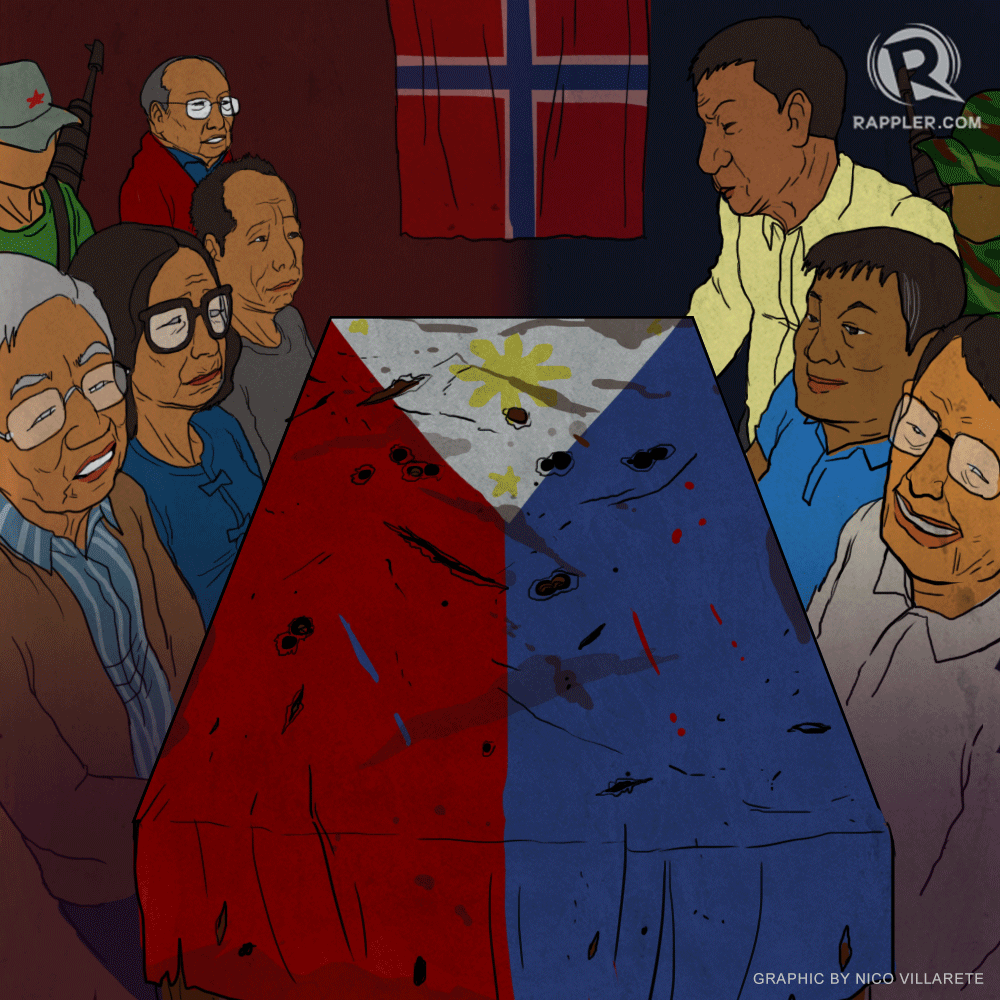Marathon talks between the Philippine government and the communist-led National Democratic Front (NDF) start today in Oslo, Norway, with both parties inching to an elusive peace deal.
Hopes are high that, finally, the Communist Party of the Philippines (CPP) and its military arm, the New People’s Army, will arrive at a political settlement with the Duterte government, a milestone in the 30-year history of protracted negotiations between both parties.
In the post-Marcos era, Duterte is the first president to be openly sympathetic to and comfortable with the Left. This is the key change underpinning the burst of optimism on both sides.
On the part of the Left, the talks will be its biggest test since the communist movement suffered its worst split in the 1990s.
There are encouraging factors going for the peace talks:
- The release of CPP leaders from prison, notably Benito and Wilma Tiamzon, who hold sway over the armed troops, and their participation in the Oslo negotiations. (READ: Joma Sison, Tiamzons reunited after 30 years)
- The appointment of CPP allies in key Cabinet posts, namely, Rafael Mariano to the agrarian reform department, Judy Taguiwalo to the social work and welfare department, Liza Maza to the National Anti-Poverty Commission; and Silvestre Bello to the labor department (Bello also leads the government negotiating panel). This is a first since talks began in 1986: Duterte has reversed the process by getting leaders from the Left to join government even before any agreement has been reached.
- Confidence-building measures such as both parties’ declaration of a unilateral ceasefire, first by Duterte, no matter that it was short-lived, followed by the current truce called by the CPP; and
- Personal ties between CPP founder Jose Ma. Sison and Duterte.
This bright spot under the Duterte government, however, is getting little public attention. Through the unending war, the CPP has lost the support of the middle class. And there is little interest in whether the talks will succeed or not.

But there’s one thing can kill the spark of hope: the President himself. Here’s the Duterte paradox: he is the biggest factor going for peace with the communists yet he may also be its obstacle.
The President is a kind of leader the guerrillas have been fighting against: a perceived dictator in waiting who is currently presiding over hundreds of extrajudicial killings of suspected drug users and traffickers.
Still, we look forward to the results of the 5-day talks in Oslo – and hope that one of the world’s longest communist insurgency will finally see its end under this administration. – Rappler.com